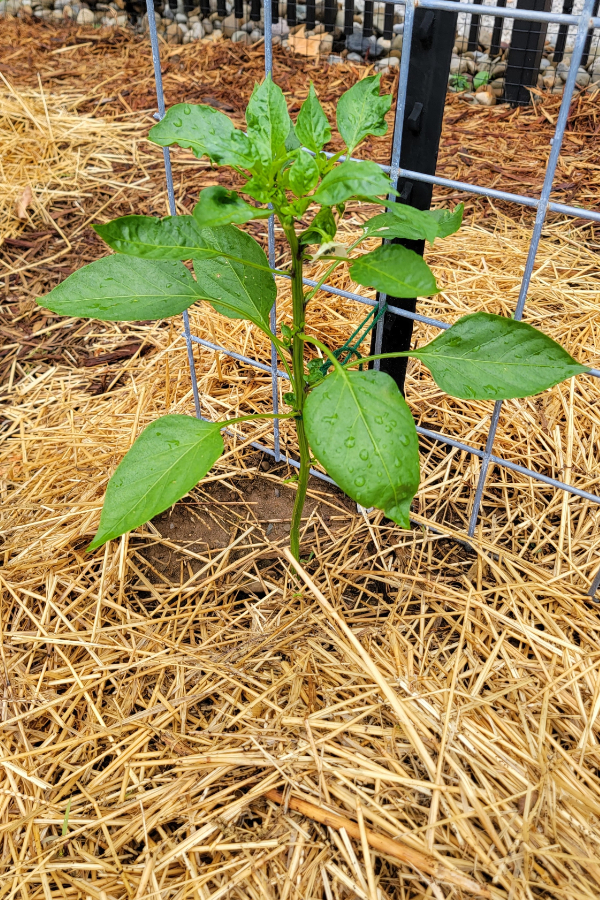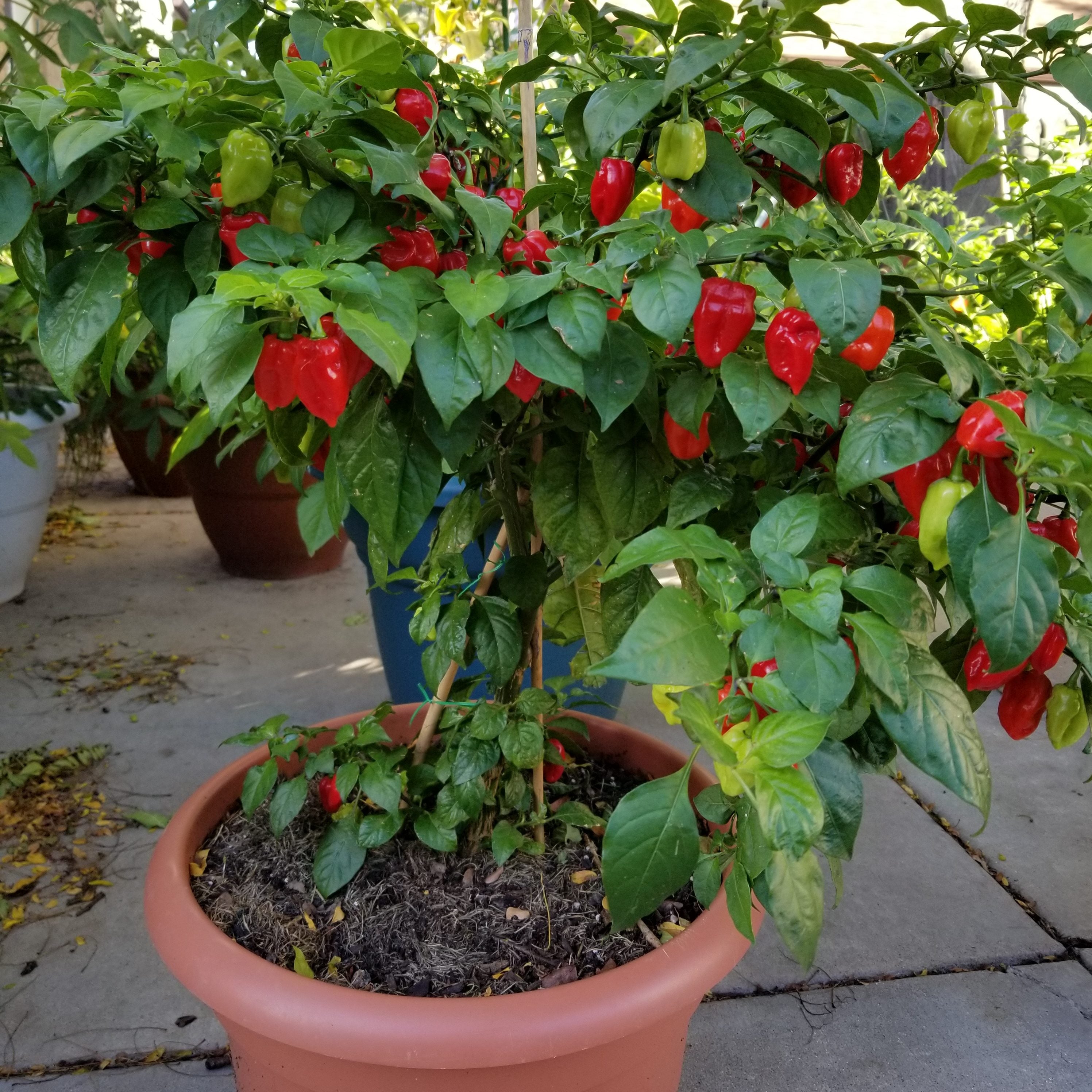Explore the Best Fertilizers for Peppers and Enhance Your Garden's Yield
Explore the Best Fertilizers for Peppers and Enhance Your Garden's Yield
Blog Article
Organic Vs. Synthetic Fertilizers: Which Is Best for Nurturing Healthy And Balanced Pepper Plants?
In the world of supporting healthy pepper plants, the choice in between synthetic and organic plant foods stands as an essential decision with far-reaching effects. While both choices objective to offer important nutrients to support plant development, the nuances of their effect on the dirt, plant health and wellness, and the environment trigger a dispute that echoes throughout the horticulture neighborhood. Understanding the distinct benefits and potential challenges of each plant food type is crucial for pepper farmers seeking to optimize their returns while maintaining an eco-conscious and lasting method.
Benefits of Organic Fertilizers
Organic plant foods use a sustainable and environmentally-friendly method to nourishing pepper plants, supplying vital nutrients without using artificial chemicals. These natural fertilizers are originated from natural sources such as garden compost, manure, bone meal, and algae, advertising soil health and biodiversity. Unlike artificial plant foods, organic alternatives release nutrients gradually, guaranteeing a well balanced and steady supply for pepper plants to prosper.
One significant advantage of natural fertilizers is their ability to enhance dirt structure and water retention. By improving dirt health, natural fertilizers promote valuable microbial activity, which helps in nutrient uptake by pepper plants. In addition, organic fertilizers lower the risk of chemical run-off, securing water resources from pollution and guarding the environment.
Moreover, natural fertilizers add to lasting dirt fertility by promoting the growth of valuable dirt organisms. These organisms assist break down raw material, releasing nutrients in a form that is quickly available to pepper plants. best fertilizers for peppers. By cultivating a healthy soil ecosystem, organic fertilizers support sustainable pepper farming techniques that profit both plants and the environment
Drawbacks of Synthetic Plant Foods
Synthetic fertilizers, in contrast to their organic counterparts, pose different drawbacks when utilized to nurture pepper plants, affecting both plant wellness and ecological sustainability. One major drawback of synthetic fertilizers is their tendency to seep nutrients from the dirt promptly. This quick leaching can bring about vitamins and mineral inequalities in the dirt, causing plants to struggle with poisonings or deficiencies. Additionally, artificial plant foods can hurt helpful dirt microorganisms, such as earthworms and beneficial microorganisms, interfering with the soil community's balance.
Additionally, the overuse of synthetic plant foods can add to water contamination. Excess plant foods not soaked up by plants can get rid of into water bodies, bring about eutrophication, where algae flowers deplete oxygen levels in the water, damaging aquatic life. Synthetic plant foods are normally derived from non-renewable sources, such as fossil fuels, adding to carbon emissions and environmental destruction throughout their production.
Nutrient Absorption Contrast
Effective nutrient absorption plays a crucial function in the total health and wellness and development of pepper plants. When comparing natural and synthetic plant foods in terms of nutrient absorption, organic plant foods have the advantage of supplying a more balanced and slow-release resource of nutrients (best fertilizers for peppers). Organic plant foods include a selection of macro and micronutrients that are not just advantageous for the plants but also promote healthy and balanced dirt microbial task, which aids in nutrient uptake. On the other hand, synthetic fertilizers usually give a quick release of nutrients, which can cause seeping and overflow, causing reduced nutrient absorption rates by the plants.
Moreover, natural plant foods boost soil framework and water retention ability, permitting pepper plants to accessibility nutrients extra successfully. This better dirt high quality assists in root development, making it possible for much better nutrient absorption. Synthetic plant foods, although initially increasing plant growth as a result of their high nutrient concentrations, might prevent long-lasting nutrient absorption by degrading soil health over time.
Ecological Influence Factors To Consider

On the various other hand, synthetic plant foods, although frequently more quickly offered and focused to plants, can have damaging effects on the setting if not used correctly (best fertilizers for peppers). Their production calls for high energy inputs, bring about greenhouse gas discharges and adding to climate adjustment. Additionally, the runoff of excess synthetic fertilizers can pollute water resources, resulting in eutrophication and damaging aquatic ecosystems.
Ideal Fertilizer Practices for Peppers
When fertilizing pepper plants, optimizing nutrient uptake and reducing environmental effect are vital factors to consider. To achieve this, it is important to adhere to ideal plant food techniques tailored to the specific needs of pepper plants. One important method is to do a dirt examination prior to using any kind of plant foods. This examination can establish the pH degree of the dirt and recognize any kind of nutrient shortages, assisting you in picking one of the most ideal plant food formula.
An additional vital technique is to feed pepper plants at the correct time. Usually, peppers take advantage of receiving plant food at growing and after that once again when they start to blossom. Over-fertilizing can bring about nutrition discrepancies and harm the plants, so it is important to follow advised application rates.
Additionally, picking a well balanced fertilizer with an NPK ratio that matches pepper plants' needs is essential. Organic fertilizers, such as garden compost or manure, can be exceptional choices as they release nutrients slowly and improve dirt structure in time. However, artificial fertilizers can give a quick nutrient increase when needed. Ultimately, incorporating organic and artificial fertilizers sensibly can aid support healthy pepper plants while minimizing ecological impact.
Verdict

Organic plant foods offer an environmentally-friendly and sustainable approach to beneficial pepper best fertilizers for peppers plants, offering important nutrients without the usage of artificial chemicals. Unlike artificial fertilizers, organic choices launch nutrients slowly, making sure a balanced and constant supply for pepper plants to grow.
Synthetic plant foods, in contrast to their organic equivalents, posture different negative aspects when used to nourish pepper plants, influencing both plant wellness and environmental sustainability. When contrasting natural and synthetic plant foods in terms of nutrient absorption, organic plant foods have the benefit of giving an extra well balanced and slow-release resource of nutrients.Moreover, organic fertilizers enhance dirt framework and water retention ability, allowing pepper plants to accessibility nutrients more efficiently.
Report this page